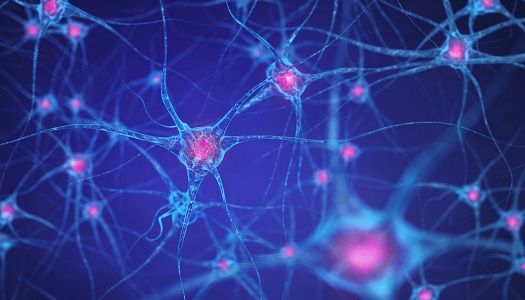Article
Cognitive Difficulties in Depressed Patients Tied to Receptor Availability
Author(s):
Researchers investigated the association between D2 and D3 receptor availability in the striatum and cognitive function in adults with major depressive disorder.

A group of researchers investigated the association between D2 and D3 receptor availability in the striatum and cognitive function in adults with major depressive disorder (MDD), and found that, in certain regions, lower D2/D3 receptor availability was associated with worsened episodic verbal memory and poorer executive function.
Joseph Kim, PhD, of the University of Utah School of Medicine, said patients with MDD often struggle with attention and executive function, but it is not clear what brain basis “is related to such cognitive dysfunction in depression.”
He added that the current study attempts to investigate the association using positron emissions tomography (PET) to measure dopamine D2/D3 receptor levels and correlating those measurements with cognitive performance.
The researchers recruited 27 right-handed participants, diagnosed with MDD, who were not taking medication. There were 18 female participants, and all were between the ages of 18 and 59 years.
The participants completed a series of tests: the Stroop Color-Word Interference Task, the Wisconsin Card Sorting Task (WCST), and the California Verbal Learning Test. Following the completion of those tests, the participants underwent PET.
The researchers examined 3 striatal regions including caudate, putamen, and nucleus accumbens (NAcc), and extracted D2/D3 receptor binding potential (BP). They then conducted partial correlation analysis using the striatal BP data as a predictor. Age, sex and smoking status were considered covariables and performance on Stroop, WCST, and the CVLT were outcome variables.
Previous studies had shown that dopamine receptor levels, specifically D2/D3 receptors in the striatum are related to cognitive function.
“We found that patients with depression show a similar relationship where lower dopamine D2/D3 receptor availability was associated with worse cognitive performance,” Kim said.
Because the study was correlational, Kim said that it cannot show whether lower dopamine receptor availability causes cognitive difficulties.
“While current results are not yet helpful in diagnosing or treating patients with depression, it does tell us that cognitive difficulties that depressed patients experience has a clear brain basis,” Kim said.
Kim added that the results raise the possibility of treatments being developed in the future that could alleviate some of the cognitive symptoms depressed patients experience.
The next step in the research should compare healthy controls and depressed patients, to learn if dopamine receptor availability differentially predicts cognitive ability.
“This will allow us to directly compare the two populations and see whether depressed patients with lower dopamine receptor availability have greater cognitive difficulties compared to healthy, normal individuals,” Kim said.
Another line of research of interest to Kim is the development of a novel pharmacological intervention. A successful, targeted pharmacological intervention could alleviate the cognitive difficulties that affect some depressed patients.
The study, "Striatal Dopamine D2/D3 Receptor Availability Predicts Episodic Verbal Memory and Executive Function in Medication-Free Major Depressive Disorder Patients," was presented at the 72nd Annual Scientific Convention and Meeting of the Society of Biological Psychiatry, and was published online in Biological Psychiatry.
Related Coverage
Mental Health Care Websites Used More by Patients with Severe Depression
Mood Effects of Ketamine Linked to Circadian Timekeeping
Alcohol Abuse, Mental Health Top List of Avoidable ED Visits





